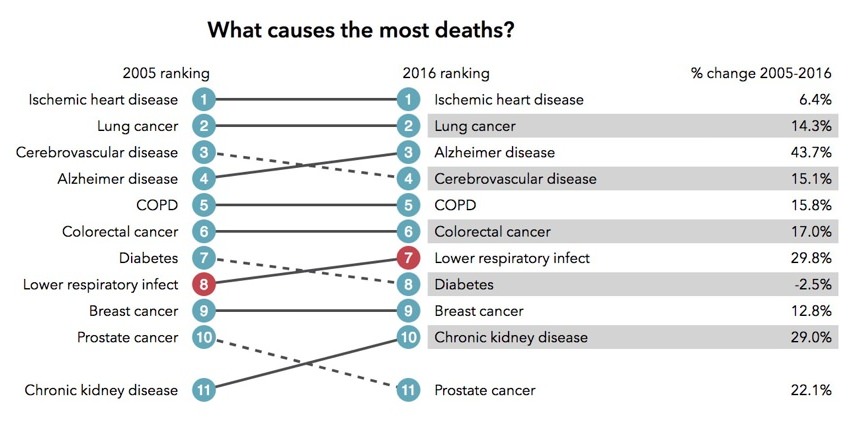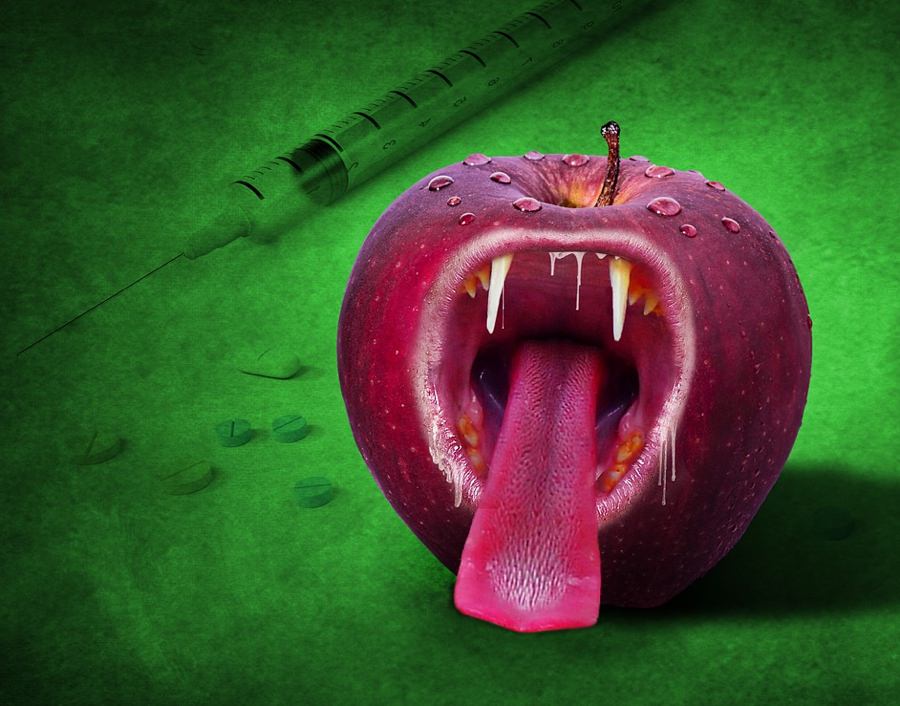Posted on Friday, July 20th, 2018 | 4,822 views
In February of every year we’re reminded that our heart deserves our special attention, and now, with heart disease being the leading cause of death in Canada there’s no better time to talk about the health of your mouth and it’s connection to the health of your heart.
This highly preventable disease is not only posing a strain on our health care system, but is decreasing the length and quality of lives of those we care about.

How Many Friends In Their 40’s And 50’s Have You Lost Due To A Heart Attack Or Stroke?
Did you know that studies show that people with gum disease are 50% more likely to suffer a heart attack? Most people are unaware of the serious health risk that gum disease poses, and how easily they can take control of of the problem and improve their oral health.
Harmful bacteria become out of balance from neglectful attention to cleaning the mouth, teeth, and the gums thoroughly – and is compounded by infrequent visits to oral health care providers. Early signs of gum disease include red, swollen, tender gums, bad breath, and bleeding.
Do You Taste Blood Or See Pink In The Sink When You Brush?
 When your gums bleed this allows harmful bacteria a direct route to other parts of your body. Bacteria entering your blood stream from the oral cavity is referred to as oral bacteremia (bacteria getting into the bloodstream) and can affect blood vessel walls and other vital organs.
When your gums bleed this allows harmful bacteria a direct route to other parts of your body. Bacteria entering your blood stream from the oral cavity is referred to as oral bacteremia (bacteria getting into the bloodstream) and can affect blood vessel walls and other vital organs.
Bleeding in your mouth is like having an open wound. If you had an open, infected wound on any other part of your body that was not healing and bled daily, would you be concerned? Of course you would!
Why then, should blood in the sink be any less significant? Consider that this is NOT just a little bleeding and is occurring on a daily basis, 7 days a week, 365 days a year for decades, having a detrimental effect on the health of your whole body.
Oral bacteremia has been established as a very significant contributor to many systemic diseases including heart disease, stroke, diabetes, pre-term low birth weight, rheumatoid arthritis, Alzheimer’s, and as well as a multitude of other serious systemic conditions.
How Do I Stop My Gums From Bleeding?
In order to stop the bleeding, more than brushing and flossing your teeth is required. Attention must be given to your gums and the proper tools used between your teeth daily to continuously disrupt harmful bacteria. Other adjuncts may be needed as well, including using medicated antibacterial rinses that are intended to target and reduce specific harmful bacteria.
Some dental offices, like Parkway Dentistry provide oral Biofilm DNA™ testing to screen for high risk oral bacteria. It gives us a better understanding of what degree of oral infection you have and what your risk level is. This will influence the antibiotic rinse that will be prescribed as part of the treatment protocol that will decrease harmful bacteria, stop the bleeding, and improve your oral health.
“If there is blood in the sink, there is an open door for bacteria to spread throughout the body and cause inflammation as it does in the mouth – we need to close this door and kill the bugs” Dr. Charles Whitney, MD.
Dr. Charles Whitney, MD is a nationally recognized educator in dentistry, writing and speaking to dental professionals about the impact they can have on a patient’s overall health.
What Is The Oral Systemic Connection?
It has long been understood that the mouth is the gateway to the body, and that the health of the mouth impacts the overall health of the body. This is the Oral-Systemic Connection.
As a dental hygienist who is very passionate about helping my clients achieve optimal oral and overall health, I feel strongly about increasing awareness of the association between gum disease and heart health, and I’m driven to inspire greater medical/dental collaboration so we can work together towards a common goal.
Many contributing causes of heart disease are routinely evaluated by physicians. While I would hope that physicians/medical providers are developing a better understanding of the connection between oral and overall body health, the question remains – is this concept being given the attention it deserves?
In the past year, I was impressed when a few of my clients told me that their cardiologist recommended they visit their dentist or hygienist. Yet, if this link was more understood, I’d expect that dental offices would be inundated with calls or letters from medical providers seeking to assess their mutual patients’ oral health.
A recent ground-breaking, peer-reviewed study published in the prestigious Postgraduate Medical Journal (Bale BF, Doneen AL, Vigerust DJ) in 2016, is the first to identify periodontal disease due to certain high-risk oral bacteria as a contributory root cause of cardiovascular disease (CVD). Earlier research suggested a mere association. In addition, the results of multiple scientific studies have concluded that people with gum disease are 50% more likely to suffer a heart attack!
According to Dr. Bradley Bale, MD; Co-author of Beat the Heart Attach Gene
“Arterial disease is driven by inflammation. Inflammation is driven by specific types of bacteria found in the mouth.”
When someone harbours these bacteria, they are at risk for heart disease. Having additional risk factors, such as high stress, poor nutrition, smoking, poor oral hygiene, sleep apnea, or poor sleep quality increases the potential for deteriorating oral health and systemic ( affecting the entire body) disease.
“Dentists need to find out which pathogens are present and what the burden is, and DNA analysis (of the oral biofilm) is the way to do this. When you have a condition that causes something, it demands that it be assessed and managed properly followed with a maintenance program to sustain good oral health” Dr. Bradley Bale, MD.
 Bridging the Gap Between Oral and Overall Health/ Inspiring Collaboration
Bridging the Gap Between Oral and Overall Health/ Inspiring Collaboration
“Periodontal Disease is a medical problem with a dental solution, so we have to drive collaboration between medicine and dentistry in order to keep the arteries well.” Dr. Bradley Bale, MD.
How can medical providers play a more integral role in the overall health of their patients? Do they understand fully, that by addressing oral inflammation/infection and working more closely with their patients’ dental health providers, that they can help their patients reduce inflammation in the body and reduce the risk of heart attacks and strokes?
At our dental office for instance, we’ve begun taking steps to reach out to the physicians in our community to share information with them about the Oral Systemic Connection, and how we can help. We also send letters to physicians informing them of our mutual patient’s oral infection, while encouraging them to work with us to help identify other risk factors and to reduce overall inflammation.
The collaborative effort of dentists, physicians and cardiologists is a great place to start, and is but one piece of the puzzle. You, the public, and the patient receiving care, must take their oral health seriously and be proactive in taking their health in their own hands. All too often I hear from a client, “I have always been a bleeder” or “bleeding is normal for me”. Bleeding in the mouth or any part of the body is far from normal or healthy.
Oral Bleeding Will Not Go Away By Brushing
You should also know that bleeding will not go away simply by brushing your teeth twice a day and flossing once a day. This is a media message we have been hearing for years. Reducing bleeding will involve more, including brushing your gums and using other tools to clean between your teeth daily in order to continuously disrupt harmful bacteria.
Other adjuncts may be needed as well, including using medicated antibacterial rinses that are intended to target and reduce specific harmful bacteria.
 Did you know that kissing and sharing utensils, you pass on these harmful bacteria to your loved ones?
Did you know that kissing and sharing utensils, you pass on these harmful bacteria to your loved ones?
Knowing this, would you choose to take your oral health seriously and implement daily behavioural changes that will improve your oral health? This requires your commitment and discipline. The first step is to acknowledge and accept that bleeding in your mouth, just as any other part of your body, is not normal and is not healthy. The second is to seek advice and treatment from your oral health care provider.
You’ve heard the expression, “the definition of insanity is doing the same thing over and over, expecting a different result.” In the dental and dental hygiene professions, we see clients regularly that have been “self managing” disease and accepting the bleeding for far too long.
With new knowledge, comes a responsibility to change. So let’s do something different and work together for a common goal. There must be an understanding of the critical role of oral health and its relationship to the prevention of heart attacks and strokes. The time is now for the integration of medicine and dentistry. So I suggest a “call to action” to the public, dentists, dental hygienists, physicians, cardiologists, and other medical providers and that they consider the following:
Physicians, Nurse Practitioners, and other Medical Health Providers: talk to your patients about their oral health. Ask when they last saw their dentist, and suggest they do so every 3-6 months. Reach out to dentists to discuss your mutual patients’ oral health and how you can work together to decrease overall inflammation, and oral-systemic health risks.
Dentists and Registered Dental Hygienists: talk to your patients about the oral systemic connection. Begin the process of collaboration, informing medical health professionals about your mutual clients’ oral health and/or high blood pressure readings. Suggest your patients learn more about an anti-inflammatory diet and reducing overall inflammation as well.
You the Patient: Do not ignore or accept bleeding. Ask your dentist or hygienist, your doctor and/or your cardiologist the important questions. Begin to make some changes. The health of your heart depends on it.
“The journey of a thousand miles begins with one step” Lao Tzu
I will close with the above quote, and also ask that you share this message, as this task is enormous and will take the ideas and actions of many people to create the kind of change that will positively impact virtually everyone we know.
Read More...
About Lorraine Gambacourt
Lorraine Gambacourt, RDH, has been a practicing Dental Hygienist since 1985. Lorraine was featured in the Spring 2016 Edition of Dental Hygiene Quarterly DVD has been a speaker at various dental-related events. She is also a Clinical Coach with OraVital® Inc., and helps dental teams across North America implement the OraVital® System. Lorraine is a strong advocate of the importance of oral health, it being a major contributor to overall wellness.
What a connection between oral health and body health! Thank you for posting this Lorraine!